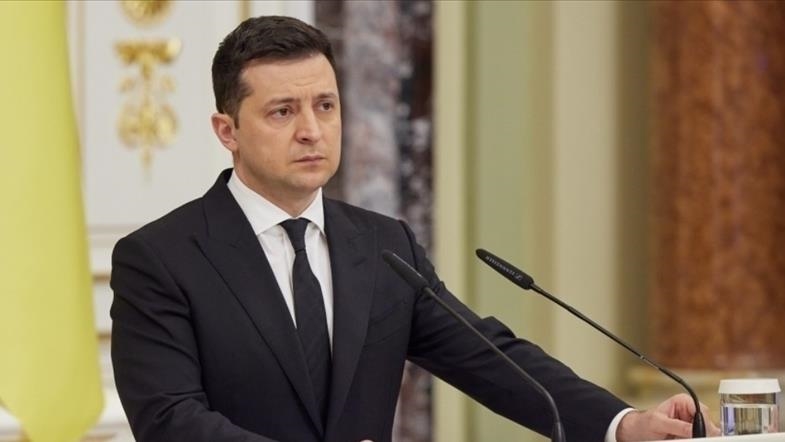
Intensifying the relations between Ukraine and African countries remains crucial. The first step towards this was made when President Volodymyr Zelenskyy approved the new Strategy of Foreign Policy in August 2021. The strategy outlines the importance of deepening economic cooperation with the Economic Community of West African States, an organisation where Nigeria plays an important and leading role. Despite the war, Ukraine remains committed to its obligations and is interested in achieving the agreement on free trade with all ECOWAS member states, particularly with Nigeria.
The idea of free trade between Ukraine and Nigeria is to open more business opportunities for both countries and balance bilateral trade. Ukraine is not only interested in selling grain and steelworks, which made the bulk of export before the war, but also in establishing joint ventures in food processing industries and the IT sector in Nigeria.
There are a couple of directions beneficial to both Ukraine and Nigeria. First, Ukrainian agricultural and food companies may explore opportunities to establish storage facilities and production lines together with Nigerian companies to cover the growing demand for safe and quality food.
Second, Ukrainian e-services, including online banking, successfully survive regular “ideal storms” of the Russian cyber-attacks and energy disruptions. I think these technologies can have great demand in Nigeria.
The third but far from the last one is that stable electricity supply is the backbone of any significant economic development. Ukraine has a unique experience in repairing and restoring electricity grids and natural gas local networks. Nigerian and Ukrainian energy companies may start pilot projects in this area and then share their solutions with other West African nations.
Trade relationships were badly affected by the war. Ukraine exported iron and steel worth $64m in 2021, according to data from Trading Economics. This trade relationship has been badly affected by the war.
Let’s take a look at the numbers. According to official data of the State Customs Service of Ukraine, in 2021, revenue from the ferrous metals exports from Ukraine was $13.96 billion. After 11 months of 2022, shipments of steel raw materials abroad fell by 67.3 per cent year to year, rolled products – by 68.1 per cent year to year, and semi-finished products – by 70.6 per cent year to year.
In monetary terms, exports during this period fell by 65.4 per cent year to year– to $4.36 billion. The war also revealed that Ukraine was an exporter of 70 per cent of the world’s neon gas, a by-product of the steel industry and an essential input in the production of computer chips.
So you can see in numbers the direct results of the invasion since Russia destroyed two big steel enterprises in Mariupol, Azovstal, and Illich Steel Plant, blocked the seaports and refused to include steel, and iron in the Black Sea Agreement on Humanitarian Sea Corridor. It is impacting the world market in general and gives a chain reaction for other industries- obviously, in a negative way and not for the good of the world or African economies already hit by COVID and the war.
In my opinion, three major factors influence the course of the war. First, resilience and adaptability of Ukrainian society and army. The facts on the ground, namely Russia’s massive losses and defeats, show that the Ukrainian state, military, and people work like a highly integrated agile network in which every agent knows what to do. After Ukraine showed its ability to withstand aggression, it transformed global politics. The international support, which began with small arms and grenade launchers, developed into a supply of modern air defence systems like Patriots and IRIS-T, modern battle tanks such as Abrams and Leopard 2, and comprehensive sharing of intelligence information.
It is remarkable that all modern military hardware is operated exclusively by Ukrainians who, also, showed new and innovative ways to repel invasion on the strategic and tactical levels. Thus, in February 2023, Ukraine is in a much stronger position vis-à-vis Russia, which means Russia’s troubles will only increase.
Finally, Ukraine’s international sanctions and economic support are transforming the attitudes of former traditional Russia allies like China and India. They begin to re-evaluate the cost and benefits of continuing cooperation with Russia, which is only three per cent of the global GDP, and risk losing cooperation with the rest of the world.
So, on the one side, you have Russia, which ruined the economic ties with the most significant trade partners in Europe. The aggressor failed with its undisguised energy, food, and nuclear blackmail against global markets. Russia is losing the war to a country with a much smaller army and population.
The government is becoming a pariah state because of lies and recorded numerous war crimes and terrorist attacks against civilians. Above all, Russia continues to claim it still has the upper hand in everything and rejects the peace plan based on the UN Charter and international law.
The choice is not between Ukraine or Russia but between civilised international relations and the war of all against all, where only threats and nuclear power matter. And African nations have an important role in choosing either way of global development in the next decade.
- Petro Burkovskyi is a senior fellow at the Ilko Kucheriv Democratic Initiatives Foundation, Ukraine




